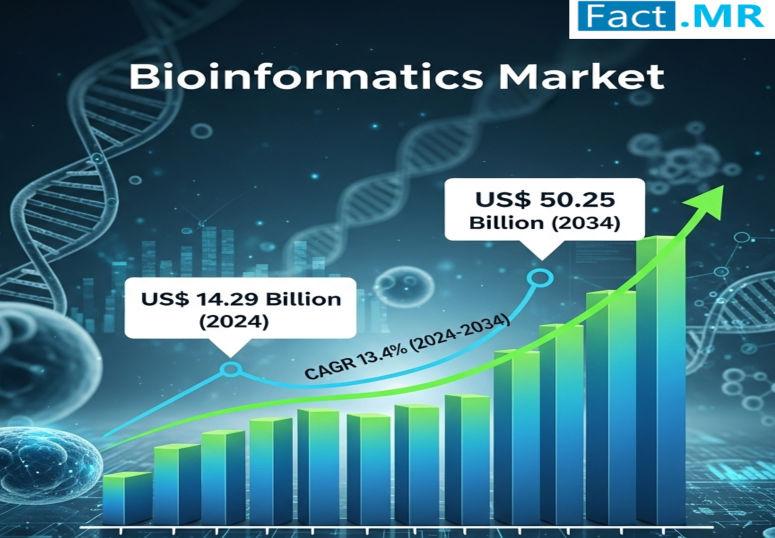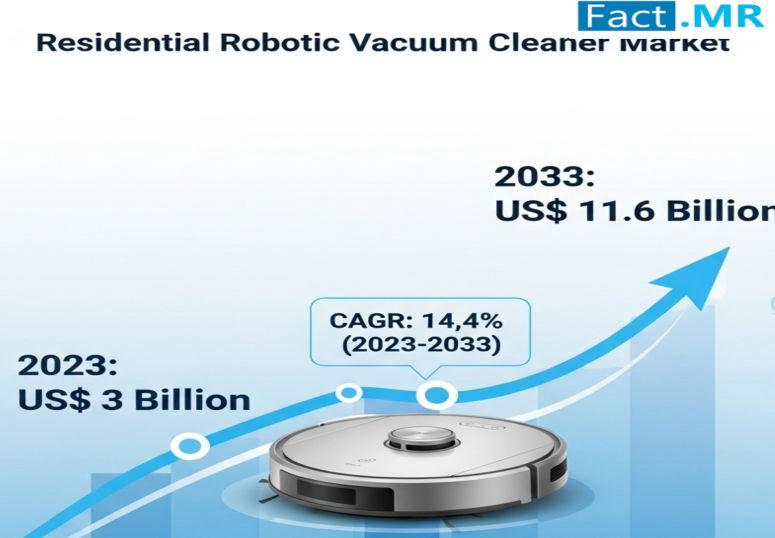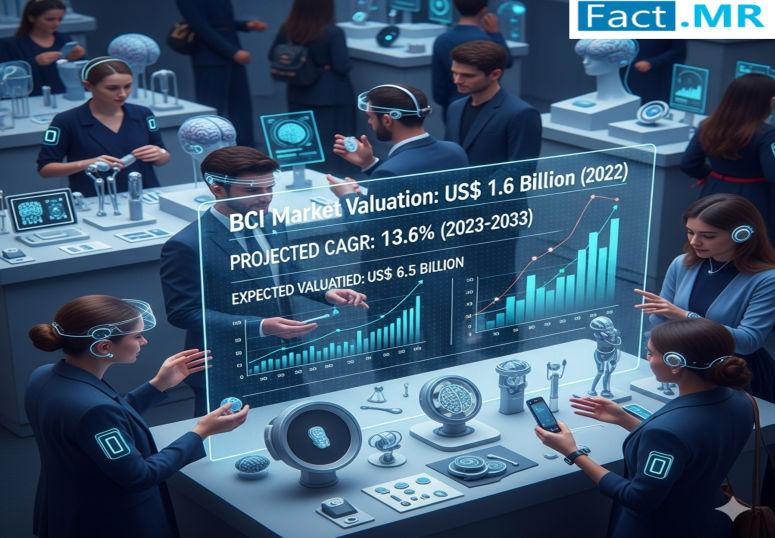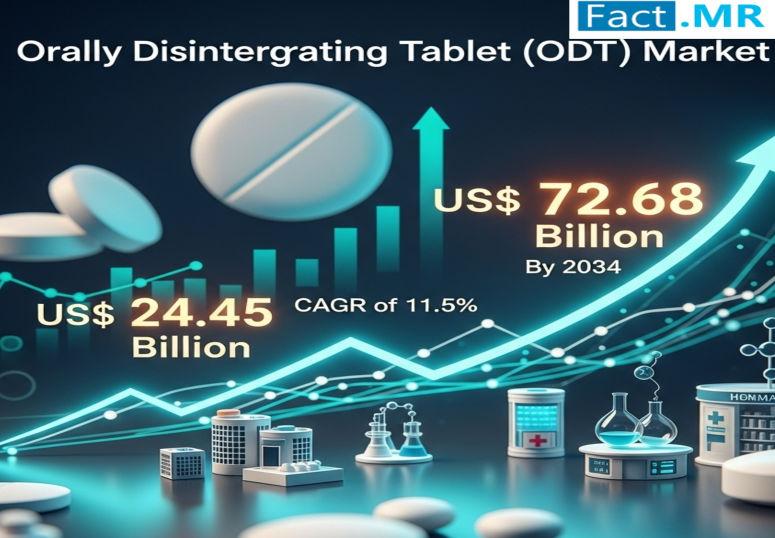Press release
Fuel Card Market Projected to Reach $3.1 Billion with 6.7% CAGR by 2034
The global gasoline card market is expected to be valued at $1.62 billion by 2024. The market is expected to grow at a 6.7% CAGR and reach a worth of US$ 3.1 billion by 2034.The Fuel Card market plays a pivotal role in the dynamic landscape of the transportation and fleet management industries, offering a streamlined and efficient solution for fuel purchasing and expense management. Fuel cards, also known as fleet cards, provide businesses with a convenient and secure way to monitor and control fuel expenses for their vehicles. As digital technologies continue to transform traditional payment methods, the Fuel Card market stands as a testament to innovation in the fueling ecosystem. These cards not only simplify the payment process but also offer valuable insights into fuel consumption patterns, helping businesses optimize their operational efficiency and control costs. In an era of heightened focus on sustainability and cost-effectiveness, fuel cards emerge as essential tools for businesses seeking effective fleet management solutions.
Get Free Sample Copy of This Report-https://www.factmr.com/connectus/sample?flag=S&rep_id=265
Fuel Card Market Future Outlook
The future outlook for the Fuel Card market is optimistic, fueled by an array of factors that underscore the industry's adaptability and response to evolving market needs. As the transportation sector embraces digital transformation, fuel cards are poised to evolve beyond traditional payment tools. The future promises advancements such as integration with telematics systems, enabling real-time tracking of fuel consumption and vehicle performance. Moreover, increased emphasis on sustainability is expected to drive the development of eco-friendly fuel card solutions that align with corporate and regulatory environmental goals. With a focus on data analytics, enhanced security features, and expanded acceptance networks, the Fuel Card market is set to play an integral role in shaping the future of efficient and sustainable fleet management.
Fuel Card Market Dynamics
The dynamics of the Fuel Card market are shaped by a range of influences, including fuel prices, regulatory changes, technological innovations, and the evolving needs of fleet operators. Fluctuations in fuel prices directly impact the cost-effectiveness of fuel card solutions, prompting market players to provide flexible and transparent pricing models. Regulatory changes, such as emissions standards and tax regulations, drive the development of compliance features within fuel card systems. The market is also responsive to technological advancements, with the integration of mobile apps, contactless payments, and data analytics becoming integral to the fuel card experience. The dynamic interplay of these factors reflects the Fuel Card market's ability to adapt to the multifaceted challenges and opportunities within the transportation industry.
Fuel Card Market Trends
Several trends are shaping the Fuel Card market, illustrating the industry's response to evolving consumer behaviors, regulatory demands, and technological innovations. One prominent trend is the integration of fuel cards with telematics systems, providing fleet managers with real-time data on vehicle location, fuel efficiency, and driver behavior. The market is also witnessing a shift towards contactless and mobile-based fuel card solutions, aligning with broader trends in digital payments. The growing demand for sustainable practices is driving the adoption of green fuel cards, offering incentives for eco-friendly fueling options. Additionally, personalized and customizable features, such as expense tracking and reporting tools, are becoming standard offerings in the fuel card market, catering to the diverse needs of businesses managing fleets of all sizes.
List of Key Companies Profiled in The Report
Hoyer GmbH
360Fuelcard
Exxon Mobil Corporation
Fuel Genie (Worldline IT Services Ltd.)
H24 (Ingenico Group)
Marathon Petroleum Corporation
Repsol, S.A.
Petro-Canada Superpass (Suncor Energy Inc.)
Radius Payment Solutions
Valero Energy Corporation
FleetCor Technologies, Inc.
Others
Fuel Card Market Recent Industry News
Recent industry news in the Fuel Card market highlights key developments and initiatives that showcase the market's commitment to innovation and customer-centric solutions. Major players in the market have announced partnerships with fuel retailers, technology providers, and financial institutions to expand their service offerings and enhance the value proposition for clients. These collaborations often involve the integration of loyalty programs, discounts, and additional services to create a comprehensive fuel card experience. Moreover, advancements in security features, such as biometric authentication and fraud detection, have been featured in recent news, emphasizing the industry's commitment to safeguarding transactions and data integrity. These developments underscore the Fuel Card market's role in fostering collaboration, technological advancement, and customer satisfaction.
Want Full Report? Enquire Here- https://www.factmr.com/report/265/fuel-card-market
Fuel Card Market Notable Developments
Several notable developments have marked the evolution of the Fuel Card market, showcasing its adaptability to changing market dynamics and the pursuit of innovative solutions. One significant trend is the introduction of blockchain technology to enhance transparency, security, and traceability in fuel transactions. Blockchain-enabled fuel cards offer a decentralized and tamper-resistant ledger, addressing concerns related to fraud and unauthorized access. Another noteworthy development is the integration of artificial intelligence (AI) and machine learning in fuel card systems, enabling predictive analytics for fuel consumption patterns and fraud detection. Additionally, the market has seen the introduction of multi-use fuel cards that extend beyond traditional fuel purchases, covering related expenses such as maintenance and toll payments. These notable developments underscore the Fuel Card market's commitment to leveraging cutting-edge technologies and redefining the scope of fleet management solutions.
Competitive Landscape
The cards and payments sector is experiencing rapid transformations, driven by technological advancements and evolving user expectations. Fintech companies are introducing innovative approaches, mobile devices are revolutionizing the customer experience, millennial consumers are reshaping interactions through social media, and legislative changes are influencing business practices. Amidst these shifts, the development of payment methods and card products, particularly in the fuel card segment, has lagged behind. However, a paradigm shift is imminent with the increasing momentum toward payment digitization and the pervasive influence of the Internet of Things (IoT). This signals a forthcoming era of change for fuel cards, aligning them with the dynamic trends shaping the broader cards and payments industry.
The Fuel Card market stands at the intersection of financial technology and transportation, offering a comprehensive solution for businesses managing fleets. As the industry continues to evolve, driven by technological innovations, sustainability goals, and changing consumer expectations, fuel cards remain indispensable tools for optimizing operational efficiency and controlling costs. The market's adaptability to emerging trends, commitment to security and transparency, and pursuit of collaborative partnerships position fuel cards as key players in the ongoing transformation of the transportation and fleet management sectors.
Explore More Related Studies Published by Fact.MR Research:
Automotive Fuel Tank Market: https://www.factmr.com/report/26/automotive-fuel-tank-market
Car Fuel Filter Market: https://www.factmr.com/report/136/car-fuel-filter-market
Specialty Fuel Additives Market: https://www.factmr.com/report/268/specialty-fuel-additives-market
Automotive Fuel Filter Market: https://www.factmr.com/report/289/automotive-fuel-filter-market
US Sales Office:
11140 Rockville Pike
Suite 400
Rockville, MD 20852
United States
Tel: +1 (628) 251-1583
E Mail : sales@factmr.com
About Fact.MR:
Fact.MR is a market research and consulting agency with deep expertise in emerging market intelligence. Spanning a wide range - from automotive & industry 4.0 to healthcare, technology, chemical and materials, to even the most niche categories.
This release was published on openPR.
Permanent link to this press release:
Copy
Please set a link in the press area of your homepage to this press release on openPR. openPR disclaims liability for any content contained in this release.
You can edit or delete your press release Fuel Card Market Projected to Reach $3.1 Billion with 6.7% CAGR by 2034 here
News-ID: 3378162 • Views: …
More Releases from Fact.MR

Bioinformatics Market is Growing at a CAGR of 13.4% by 2034 | Fact.MR Report
The latest report on the Bioinformatics Market, projecting robust growth driven by the increasing demand for genomic research, advancements in artificial intelligence (AI), and the rising adoption of precision medicine. Valued at USD 14.29 billion in 2024, the global market is forecast to expand at a compound annual growth rate (CAGR) of 13.4%, reaching USD 50.25 billion by 2034. This significant growth underscores the critical role of bioinformatics in decoding…

Residential Robotic Vacuum Cleaner Market to Reach USD 11.6 Billion by 2033 | Ke …
Fact.MR today released its latest report on the Residential Robotic Vacuum Cleaner Market, projecting robust growth driven by increasing demand for automation, busy lifestyles, and advancements in smart home technologies. Valued at USD 3.0 billion in 2023, the global market is forecast to expand at a compound annual growth rate (CAGR) of 14.4%, reaching USD 11.6 billion by 2033. This significant growth highlights the rising adoption of robotic vacuum cleaners…

Brain-Computer Interface Market is Estimated to Reach USD 6.5 Billion by 2033
The global brain-computer interface (BCI) market was valued at USD 1.6 billion in 2022 and is projected to reach USD 6.5 billion by 2033, growing at a compound annual growth rate (CAGR) of 13.6% from 2023 to 2033. This expansion reflects the increasing adoption of BCI technologies in medical applications, driven by advancements in neuroscience, AI, and sensor technologies. BCIs enable direct communication between the brain and external devices, offering…

Orally Disintegrating Tablet Market is Projected to Reach USD 72.68 Billion by 2 …
The global orally disintegrating tablet (ODT) market is valued at USD 24.45 billion in 2024 and is forecasted to expand at a compound annual growth rate (CAGR) of 11.5%, reaching USD 72.68 billion by 2034. This robust growth is driven by the increasing demand for patient-friendly dosage forms, particularly among the elderly, pediatric, and dysphagic populations, who benefit from ODTs' ease of administration without water and rapid dissolution. ODTs enhance…
More Releases for Fuel
Fuel Cell Market to Expand Significantly by 2024 | Horizon Fuel Cell Technologie …
The "Fuel Cell Market" intelligence report, just published by USD Analytics, covers insurers' micro-level study of important market niches, product offers, and sales channels. In order to determine market size, potential, growth trends, and competitive environment, the Fuel Cell Market provides dynamic views. Both primary and secondary sources of data were used to generate the research, which has both qualitative and quantitative depth. Several of the major figures the study…
Electronic Fuel Management System Market Share and Future Forecast 2022 to 2028 …
The global Electronic Fuel Management System market revenue is expected to register a CAGR of 8.8% during the forecast period.
Latest Study on Industrial Growth of Electronic Fuel Management System Market 2022-2028. A detailed study accumulated to offer current insights about important features of the Electronic Fuel Management System market. The report contains different market predictions related to revenue size, production, CAGR, Consumption, value chain optimization, price, and other substantial factors. While emphasizing…
Marine Gensets Market: Information by Vessel Type (Commercial Vessel, Defense Ve …
A marine genset is a power unit generator that supplies electricity to ships. It offers reliable and fuel-efficient electric power generation for onboard power, emergency gensets, and diesel-electric propulsion. It can be fueled by gas, diesel, hybrid fuel, and others. It has application in offshore commercial vessels, defense vessels, and offshore vessels, among others. Nowadays, most of the marine gensets are fueled by diesel. However, the introduction of alternative fuels…
Fuel Card Market to 2027 - Global Analysis and Forecasts By Type (Branded Fuel C …
The global fuel card market is estimated to account US$ 6.29 Bn in 2018 and is expected to grow at a CAGR of 5.8% during the forecast period 2019 – 2027, to account to US$ 10.39 Bn by 2027.
Request Sample Pages of “Fuel Card Market” Research Report @ www.theinsightpartners.com/sample/TIPRE00003099/?utm_source=openpr&utm_medium=10387
Fuel Card Market: Key Insights
Fuel Card Market Size 2021, by manufacturer, region, types, and application, forecast till 2028 is analyzed and researched on…
Clean Fuel Technology Market – Development Assessment 2025 | Clean Fuel Develo …
Global Clean Fuel Technology Market: Overview
Clean technology in general implies the use of any service, product, or system that has as little of a negative impact on the environment as possible. Aspects of clean technology include the conservation of energy, sustainable resources, and clean sources of fuels. Clean fuels can refer to the use of renewable fuels such as biogas, or also blended fuels such as fossil fuels with renewable…
Fuel Cell Interconnectors Market By Product Type Ceramic based, Metal based; By …
Global Fuel Cell Interconnectors Market Introduction
A fuel cell is a battery that generates electricity through an electrochemical reaction where the fuel cell interconnector is a layer made up of either ceramic or metallic material, which combines the electricity generated by each individual cell. Fuel cell interconnectors are placed between each individual cell to connect the cells in the series. Ceramic fuel cell interconnectors are more suitable for high-temperature working conditions…
